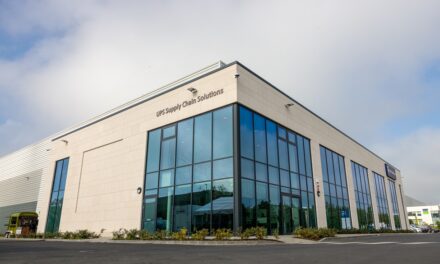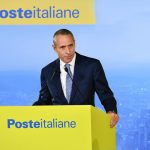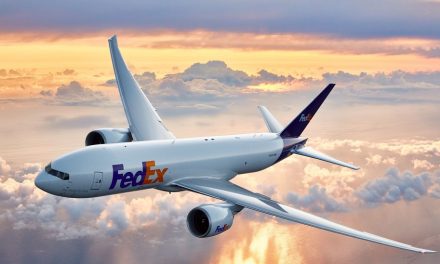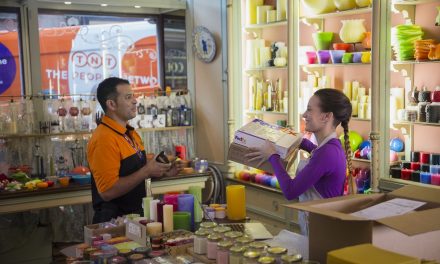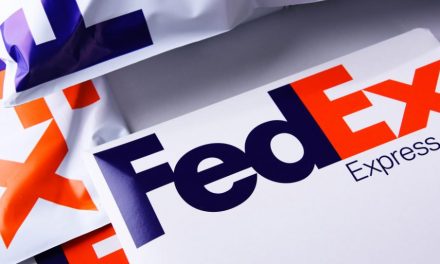
TNT moves up a gear
It has taken a 'ten-pound Pom' more than two years to get the express freight and logistics group back into profit.
Roger Corcoran has a way with words. Not that he speaks much – at least not publicly. Since taking the reins at the express freight and logistics group TNT Australia in September 2001, media engagements have been few and far between. But now, with TNT's local operations finally in the black for the 12 months to December 31, 2003, it is time to talk. Corcoran wants to set the record straight. It is not all backslapping. Not at all. He seizes the opportunity to reflect on the past. Those deeply flawed strategies that took TNT to the brink a few years ago – and, make no mistake, TNT was another Ansett in the making when Corcoran was appointed managing director – are openly acknowledged and painfully dissected before he tackles the present and future. Indeed, in one sense, discussing the past almost seems a cathartic experience for Corcoran.
It has taken a 'ten-pound Pom' more than two years to get the express freight and logistics group back into profit.
That is not surprising. The profit-and-loss figures, openly revealed for the first time, tell the story – bluntly. In 2000, TNT Australia, a fully owned subsidiary of TPG, the Dutch mail, express freight and logistics group, lost $76 million. The following year that was pared back to $47 million, followed by a $32-million loss in 2002. The company turned the corner last year with a profit just under $8 million, a figure largely based on snaring slightly less than 30% of the express freight market. (Those losses exclude the write-off for Ansett's express freight business.) The figures, however, are only the bones of the story. It needs Corcoran, a committed TNT man of 25 years' standing, to give the story flesh and blood. "TNT Australia had been neglected … and we paid the price for that. Australia was not perceived as a problem after [TPG acquired it in 1996] because it wasn't a problem initially. It wasn't until 2000 that we needed to take some action.
"Some of the figures do frighten you. In 2000 we lost $76 million, and I have to say that generates the odd anal contraction. Even in Holland. Obviously we had to take some action pretty quickly. [The 2000 result] was highlighted in the TPG annual report. We were very much on the radar screen and we have worked very hard in the past two-and-a-half years to take TNT Australia off that screen. We've achieved that."
That is not strictly true. TNT Australia is still being watched by headquarters in Amsterdam, but Corcoran can live with that. For a multinational with global revenue of $US11.9 billion in the 2003 financial year (TNT Express alone operates in 212 countries and regions), getting a positive mention in chief executive Peter Bakker's three-page summary in the annual report for that year is no mean feat, even if it was a matter-of-fact comment of 13 words: "Our once-troubled express business in Australia achieved a full year of profitability."
Yet the measure of that achievement can only be realised on hearing Corcoran describe TNT's woes. "When I arrived in September 2001, our major line-haul operator [Ansett] had just gone bankrupt. We were faced with trying to salvage that and continue trying to provide for our customers. The first priority was to get space on Qantas and Virgin, which we did, virtually with zero interruption to the business."
But the problems went much deeper than one bankrupt airline, as Corcoran readily acknowledges. "How did this mess occur? You can probably trace it back to three areas. The acquisition of Ansett's express freight business in 1999 probably shouldn't have happened. [Then there was the] merging of various divisions in 1999 with distinct brand names such as Comet. People thought there were synergies there, but they didn't put together a coherent plan to do it."
Possibly the biggest mistake in Corcoran's eyes was the decision to outsource the administration, and it was one of the first problems he tackled, bringing the operation back in-house. "I'm a great believer that you can never outsource where you interface with your customers. There's no one who can interface with your customers better than you can. At one stage in 2000 there were 18,000 outstanding invoices a week. Now there are fewer than 100. People will pay if the invoice is correct. That's a fact.
"Then we had to improve the quality of our service to our customers. It was not that hard because staff wanted to do it. They just needed to focus. I went around to every major depot in the country … and stood on the dock and pointed out the problems that we had and what we needed to do to fix them. I said, 'It's your job to deliver on time and deliver in perfect condition', and they understood that. They had been frustrated [by management]. What they needed was for management to give them a focus. If people can see that, if they can see you are managing that business day to day, they will respond."
In essence, the problems provided the solutions. Poor customer service typically reflects disgruntled staff who resent inept management – strategically and on a day-to-day basis. If there is leadership, staff willingly follow, and customer service, so crucial in the freight business, improves exponentially. After all, the basics of express freight, which earns about 85% of TNT Australia's income (estimated in 2003 at more than $75 million), is pretty simple: deliver goods on time and in one piece and make sure you get paid on time. It is hardly rocket science.
But when Corcoran arrived, TNT was failing to deliver. Rivals were snaring business. Invoices were not being paid. He admits that selling the business was one option. He has no doubt that loyalty saved the business and gave management the breathing space it needed. "What saved TNT? Brand loyalty. There are lots of people loyal to TNT – customers and staff. At this time it was not just customers you could have lost, but valued staff."
Staff. The word rolls endlessly off his tongue. Although Corcoran emphasises seven key processes put in place to push the business – he proudly says TNT Express has adopted these processes worldwide – it is hard to escape the conclusion that the turnaround comes back to having motivated staff with faith in management. Today, TNT Australia has twice-yearly employee surveys and the results fill Corcoran with pride. "The satisfaction level among employees is fantastic. Up to 85% of the 5500 workforce say they are 'satisfied' or 'better'. We now have a motivated workforce, people who believe in the company and can see us going forward."
Corcoran says a committed workforce will accept tough decisions. Early in his reign there was a 10% staff cut. "It needed to be done and it was done sensibly, without pain," he says, then quickly corrects himself – "without relative pain". The Transport Workers Union (TWU), which covers about half the workforce, was kept in the loop, a point its federal secretary, John Allan, happily concedes. "Corcoran is a straight shooter. The management is better, they're investing in technology and they're getting rid of customers who were slow payers. I should know, we were one of them," he says with a chuckle.
For his part, Corcoran sees the TWU as another vehicle to get his message across to staff. "I have a good working relationship with the TWU. I meet with the union regularly and update them on where we're going. I get the Sydney delegates in here and tell them where we are going as an organisation. One of the big problems we faced in 2001 was people being scared about their job security. In fact, that was their biggest fear. Part of my job as managing director is to give them a sense of security, that what we are doing is turning the business around and getting it back on track. In my mind there's no doubt people see that."
Viable long-term strategies are one thing. What Corcoran badly needed in 2001 was a circuit breaker, a big contract that would show that TNT was back in the game. Corcoran describes himself as a "ten-pound Pom" (he migrated from Bristol in England in 1971); and as a rugby union fanatic whose heart beats a little faster when England runs on the field, especially against the Wallabies, what better opportunity than the rugby world cup in Australia? "I approached the organisers in 2001 and asked, 'Who is doing your logistics?' I argued that only TNT could do it all in-house, from collecting equipment in Uruguay, Georgia, France or England and transporting it to Australia, then clearing Customs and quarantine, delivering it to the various grounds and then, as the tournament progressed, moving it by air or road to wherever. They went to tender and there was no other company that could do it in its own right. We could, and did it extremely well. It's part of being in an international organisation."
Looking back, Corcoran sees it as a turning point. "We got a bit of favorable press. It lifted the company." More importantly, it points to where TNT is now heading strategically – using its international clout (worldwide, TNT Express moves 3.3 million items a week) and the balance-sheet muscle of TPG to secure local business. "We can expand our range of services. Mail-room management is one area where we can look. We established this in Europe." TNT is also developing a range of new products where the margins, in an industry where they are traditionally lean, are a little fatter. Corcoran says: "There's greater demand for same-day, top-urgent, must-be-delivered freight. Price is not irrelevant but it is secondary. Mining and medical are two examples. When you're moving blood samples, you can't afford delays." Specialised staff are focusing on specific industries: fashion is one, computers another.
It is slowly coming together. TNT Australia is still way short of the 6.5% return TNT Express achieved globally in 2003. But Corcoran is confident enough to push the TNT bandwagon – even politically. His language is measured, but Australia Post's acquisition (in partnership with Qantas) of express freight rival Star Track Express, for $750 million, clearly angers him. "I was surprised at the acquisition. I was very surprised at the price … at the end of the day, $375 million of that money is yours and mine. Is that the best way to spend it in what is a well-serviced market? I don't know." Yes he does. Australia Post is a monopoly and that tilts the playing field, a view Canberra is likely to keep hearing. The acquisition could also redefine TNT's relationship with Qantas. "We need to assess our relationship with Qantas. We are a major customer internationally and now they are a major competitor domestically. We have to [look] at what we do with our international business because that's a pretty competitive business."
For Corcoran, who was "acquired" by TNT in the early 1980s after it bought the courier service Skypak, which he joined in 1979, the past few years have been enormously satisfying. He lives and breathes TNT – "there's never been a day when I didn't want to get up and do it" – having spent most of the past 25 years out of Australia, in Asia, Canada, the Middle East and Europe. He recalls starting TNT's China operation in 1980, just one year after the former paramount leader, Deng Xiaoping, opened the Middle Kingdom to the West. "I opened the agency in China in 1980. The doors were just creaking open. I spent three nights on a hotel reception floor just trying to get an appointment with the national transport agency in Beijing. It was difficult. Very difficult."
So he did not think twice in 2001 when he was asked to run the troubled Australian operation. The commercial and the personal dovetailed perfectly. "I always wanted to come back to Australia. My wife's Australian and she's got five sisters here. But it was a great opportunity to come back and try to turn it around. At the end of the day, what you're doing is saving 5500 jobs. That's what we did."


